As rural areas struggle to keep young people in their communities, the Innovative Youth Corn Challenge is a project designed to encourage youth to pursue an agricultural career and return to rural Nebraska.
Registration
2026 registration will open in January!
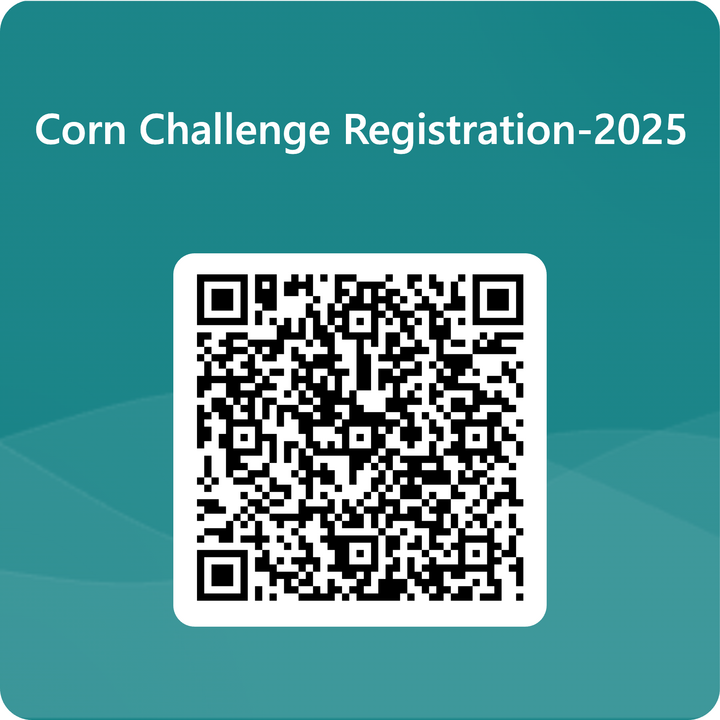
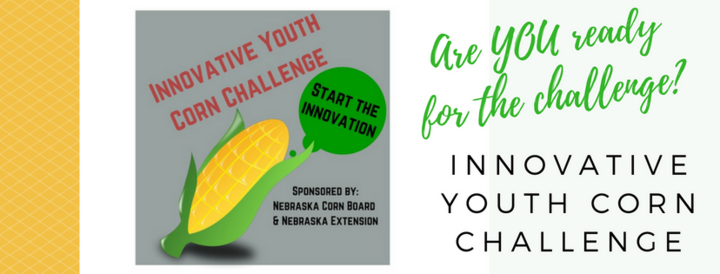
2024 Challenge Winners
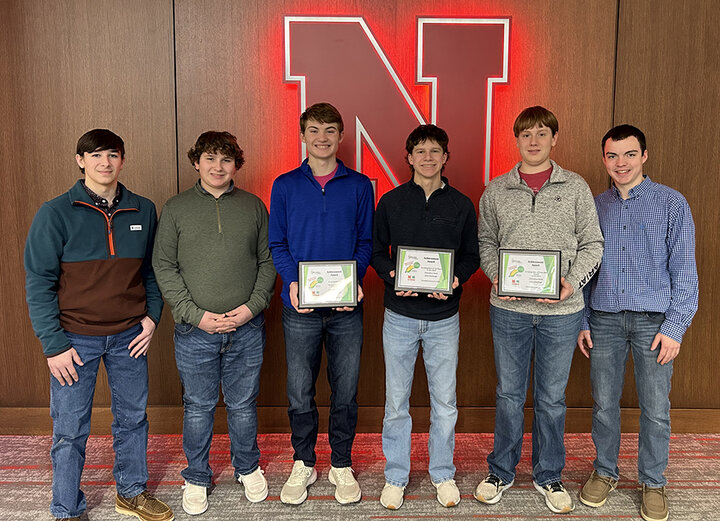
First Place: Arlington FFA Chapter
The Arlington FFA Chapter also received the 2024 Extra Mile and Ag Literacy awards.
Congrats to the Arlington FFA team!
Contact:
Brandy VanDeWalle
Extension Educator
(402) 759-3712
brandy.vandewalle@unl.edu
Faculty Bio
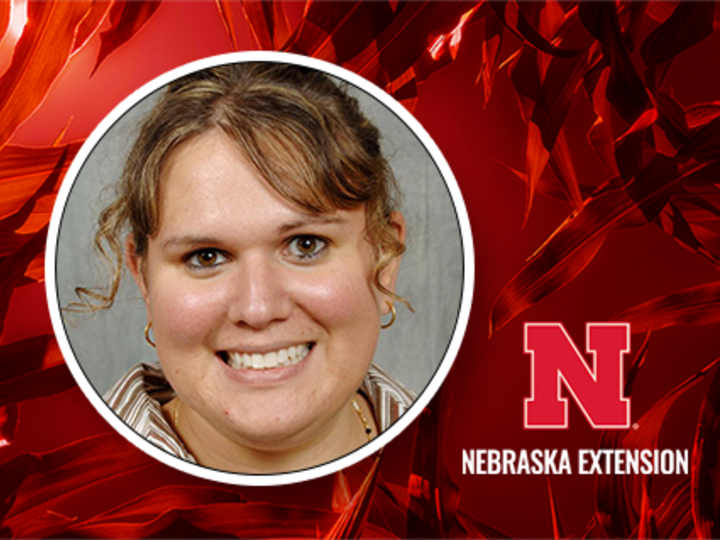
The Competition's Purpose:
- To achieve new and innovative crop production methods to improve yields and provide research data for producers to implement in their operations which are economically feasible.
- To disseminate data to corn producers, researchers, and agri-businesses to examine and decide whether the practices used will help their operation achieve higher yields.
- To introduce youth to a variety of agronomic professionals, including corn producers. Youth will be working with an adult to mentor them through the process. These adults could be extension faculty, ag teachers, or other qualified agronomy professionals.
- To teach youth all aspects of corn production, as well as a variety of agricultural careers related to corn production.
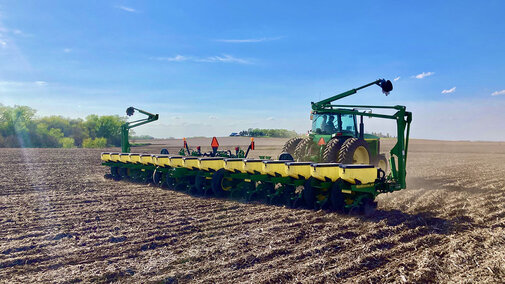
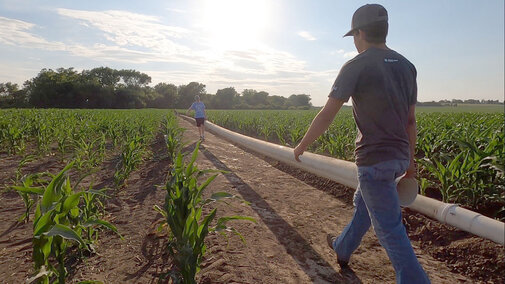
Eligibility
4-H members (age 8 and older as of Jan. 1) or FFA members (in-school members) may participate.
Yields, cropping history, and production information will be included in the Corn Yield Challenge management summary. (No limit on teams/county)
4-H Members
4-H'ers from each county are challenged to produce the most economical, highest yielding corn. The team with the highest percent yield increase over their local county average will win cash awards for their 4-H project to be used for plant science or leadership based programs.
FFA Members
FFA members from each chapter are challenged to produce the most economical, highest-yielding corn. The team with the highest percent yield increase over their local county average will win cash awards for their FFA project to be used for plant science or leadership-based programs.
Requirements for Participation
Each participating team needs a minimum of two, one-acre plots, which will be harvested for the Challenge. The plots can be on privately or publicly owned land but youth should be involved in the planning, managing, and harvesting of the plots.
Participants planting randomized and replicated plots are encouraged and if completed correctly will receive "bonus points". Both irrigated and dryland fields are eligible and will be scored accordingly.
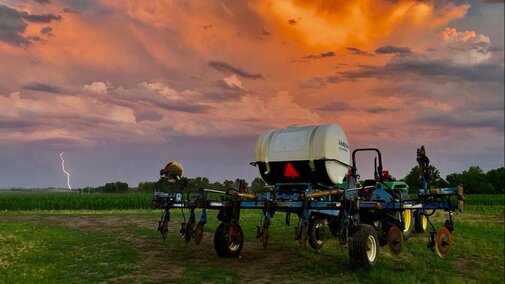
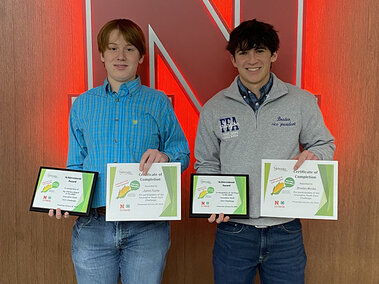
Awards/Recognition
Money is encouraged to be spent on furthering their projects which could include participation in activities such as workshops or agricultural tours, or next year's project, etc. Team plaques will be given to the top 1, 2 & 3rd place teams.
Awards include:
1st Place Corn Challenge - $1,000
2nd Place Corn Challenge - $500
3rd Place Corn Challenge - $250
Ag Literacy Communications Award $200
"Extra Mile" Award - $200
All teams will receive $50 and a certificate of recognition.
Competition Resources
In This Section:
Challenge Forms: Please see this menu for all forms that youth will need in order to participate in the Corn Challenge.
Crop Production Resources, Yield Estimates & Corn Growth Stages: Don't know a lot about corn? UNL Extension has you covered — explore these basic corn production resources for help.
Need some inspo for your Ag Literacy video?
View these great Ag Literacy video submissions by Exeter-Milligan-Friend FFA Chapter and Arlington FFA Chapter.
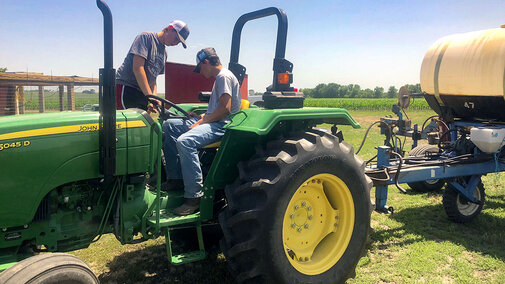
Resources to Help with Your Project
Challenge Forms
Planning Resources
- Plot layout diagram
- 2024 Orientation Recording
- Powerpoint Slides
- Participant Checklist (pdf)
- Photo Release Form (pdf)
- Project Proposal (pdf) - Due June 15
- Scouting Form (Use during growing season) — Submit these with Harvest Report Form
Harvest Information
- Harvest Report Form (PDF) — Due December
- Innovation Explanation (PDF) — Due with Harvest Report Form
Optional/Other Resources
Crop Production Resources
Pathology
Plants can develop diseases, which are defined as "anything that prevents a plant from preforming at its maximum potential." In order to understand diseases that affect corn, you need to first understand basic disease terminology.
Corn can develop foliar diseases as well as stalk rot diseases.
Entomology
Identifying insects takes great attention to detail. While trying to identifying insect you will need to look at different parts of the insect’s anatomy. Need a refresher on insects?
A diagnostic key is helpful in order to correctly identify pests feeding on corn.
Soils & Nutrients
You need to be aware of your soil types and understand basic soil fertility to be successful growing crops. Corn requires an effective fertilizer program. In order to efficiently apply fertilizer you should know how to take soil samples.
Do you know what Nebraska's state soil is?
Weeds
Weeds not only take moisture away from crops, but valuable nutrients. You need to know how to properly identify weeds so you can spray them effectively.
Irrigation Management
Nebraskans are blessed with a rich water resource available to raise crops even in drought stricken years. Each year, farmers become more technology savvy and efficient with their irrigation management.
Yield Estimates
How Do You Estimate Corn Yield?
- Methods for Calculating Corn Yield (Univ. of Wisconsin)
- Estimating Corn Grain Yield (Purdue University)
- Estimating Corn Yields (Univ. of Kentucky)
Corn Growth Stages
How Do You Identify Corn Growth Stage?
Most of the time we determine a corn plant's stage of growth by breaking it into two stages in its life — the vegetative and reproductive stages.
More corn development — Corn Leaf Stages